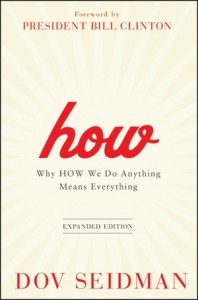Economic Justice

Less than one percent of the federal budget goes to foreign aid. Our spending on development and foreign assistance is not -- by any stretch of the facts or imagination -- our national debt.
Cutting foreign aid programs will do little to get us out of debt, but would be a devastating setback in the fight against global, extreme poverty.
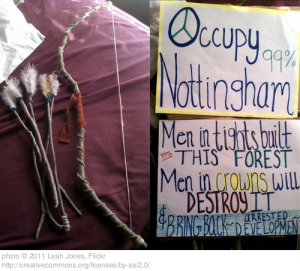
With the opening of the G20 Summit in Cannes, France today, an idea that's been around for awhile is in the news again and gaining more attention as a result of the #OWS movement: The so-called "Robin Hood tax," a minimal tax on all financial transactions with the resulting revenue dedicated to anti-poverty programs....Archbishop of Canterbury Rowan Williams, in his response to the occupation of St. Paul's Cathedral in London, endorsed the Vatican proposals. Williams observed that "people are frustrated beyond measure at what they see as the disastrous effects of global capitalism," and urged a full debate on "a Financial Transaction Tax
Doomsday threats and Wall Street influence erode U.S. government for the people.
The Housing First approach to homelessness is more humane -- and cheaper -- than older models.
In case you missed it...
In an OpEd titled, "What the Costumes Reveal," New York Times columnist Joe Nocera wrote about a Halloween office party thrown by the N.Y. law firm of Steven J. Baum, an outfit that specializes in real estate foreclosures -- a "foreclosure mill," if you will -- where, apparently, employees came costumed as homeless and foreclosed-upon families.
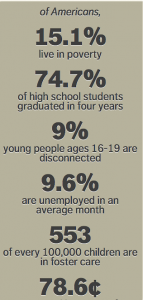
Perhaps the most important finding from the report is that we have both the experience and the policy tools necessary to cut poverty in half.
Between 1964 and 1973, under both Democratic and Republican administrations, the U.S. poverty rate fell by nearly half (43 percent) as a strong economy and effective public policy initiatives expanded the middle class.
Similarly, between 1993 and 2000, shared economic growth combined with policy interventions such as an enhanced earned income tax credit and minimum wage increase worked together to cut child poverty from 23 percent to 16 percent.
We can't do this alone.
On Nov. 5 folks all over the world will divest from Wall Street and its banks … in order to invest in a better world.
Ideologies alone are not enough. There came a point in the movement to abolish slavery where ideology required responsibility. As one abolitionist said, “The only way to be a good slave-owner is to refuse to be a slave-owner.” To truly be against slavery also meant that you didn’t drink sugar in your tea, because sugar was produced with slave labor.
So on November 5, my wife and I will be joining the “Move Your Money” celebration, moving our money from Bank of America to the non-profit credit union here in Philadelphia.
It is one small step away from the vicious cycle that continues to see money transfer from the increasingly poor to the increasingly rich.
It is trying to take to heart Jesus’ command to “Get the log out” of my own eye.
It is a move towards Gandhi’s call to “Be the change you want to see in the world.”
It’s one little step towards being less of a hypocrite tomorrow than I am today.
What you don't know about poverty can hurt you, and the nation's poor. I'm guessing there are quite a few people who don't know that the poverty line for an individual is just 22,314 a year for a family of four and $11,139 for an individual. Or, that three out of four poor adults have jobs and half of them are working full time. They also might not know that one in four children under the age of 5 live in poverty.
This morning, the Center for American Progress released their first annual report to track progress on the goal of cutting the poverty rate in our country in half over the next ten years
When some of these local young people heard about my event, and asked the church if they attend, the church graciously gave them free tickets. Apparently, the word spread and a big crowd of protesters descended on the already large audience. It soon became clear that Occupy Grand Rapids was in the house as they enthusiastically participated in the discussion, offering very civil, but also very challenging questions.
After the program ended, the young Occupy Grand Rapids activists asked if I would spend some time with them, to which I quickly agreed. But they also asked the Mayor to stay, and bravely, he also accepted - a decision I thought was in keeping with what a responsive democracy should look like.
The very real needs of Americans pale in comparison to the needs foreign aid addresses. Poor families around the world are right now starving to death. If we cut American aid, we can be sure that millions will die. At a time when our politicians are considering how to cut as much as $1,500 billion from the federal budget we shouldn't try to cut the $33 billion we spend annually to assist the victims of malaria, famine, or natural disasters.
What would it be like to eat on a budget of $4.50 a day, the average daily allotment for the 45 million Americans who use food stamps? This week, the Sojourners interns are joining other faithful folk nationwide in finding out!
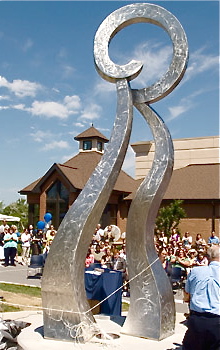
Our moral strength as a society comes from how we treat vulnerable populations. The rise of programs such as Medicaid and Head Start has allowed the independent living movement among those with disabilities to flourish and groups such as Heritage Christian Services do their life-changing work
But here's the problem: Heritage Christian Services just saw their funding cut by the federal government and they are concerned that worst of the cuts are yet to come.
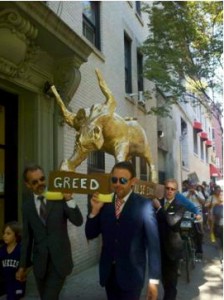 Editor’s Note: In light of the recent protests at #OccupyWallStreet and around the world, we have revisited Jim Wallis’ 2010 book Rediscovering Values: On Wall Street, Main Street, and Your Street and picked out some passages that are particularly pertinent to what we are seeing in our nation today.
Editor’s Note: In light of the recent protests at #OccupyWallStreet and around the world, we have revisited Jim Wallis’ 2010 book Rediscovering Values: On Wall Street, Main Street, and Your Street and picked out some passages that are particularly pertinent to what we are seeing in our nation today.
The Passover of the Jews was near, and Jesus went up to Jerusalem. In the temple he found people selling cattle, sheep, and doves, and the money changers seated at their tables. Making a whip of cords, he drove all of them out of the temple, both the sheep and the cattle. He also poured out the coins of the money changers and overturned their tables. He told those who were selling the doves, “Take these things out of here! Stop making my Father’s house a marketplace!” His disciples remembered that it was written, “Zeal for your house will consume me.”
– John 2:13-17
Interestingly, in his turning over of tables, Jesus specifically targeted the merchants who were selling doves. Doves were the least expensive sacrifice permitted to be offered in the temple, and, therefore, were often bought by the poorest of the pilgrims.
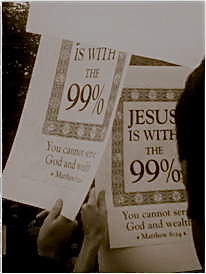
[When Jesus turns over the tables] we see a man enraged at injustice and passionately confronting those who exploit the poor. We also learn that there are some things that we all should get angry about, that there are situations where the only appropriate response is confrontation…
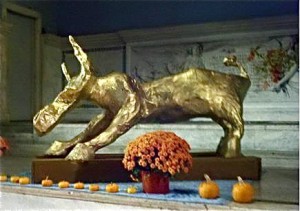 First, we were sold a lie. We were sold an illusion that promised the American Dream was as close as our next purchase. That we could pursue our selfish interests without thought to the consequences, because the “invisible hand” would work it all out in the end. We were told that we did not need to work for wealth, that it would come if only we put our money in the hands of the right stock broker, mutual fund, or stock…
First, we were sold a lie. We were sold an illusion that promised the American Dream was as close as our next purchase. That we could pursue our selfish interests without thought to the consequences, because the “invisible hand” would work it all out in the end. We were told that we did not need to work for wealth, that it would come if only we put our money in the hands of the right stock broker, mutual fund, or stock…
Second, the rules of the game failed. It was supposed to be simple. Work hard, get ahead, buy a home, and tuck some money away for the future in a 401(k). If you followed those rules, everything would work in your favor. But good jobs have disappeared, wages have been garnished, and 401(k) savings have disappeared. The rules of the game seem to have worked for those who set the rules, but not for those who played by them.
Third, our good was supposed to trickle down. We were promised that as the rich got richer, the rest of the country would prosper as well. If we handed our finances and ultimately our lives over to those who knew the market the best, it would benefit us all. If we took the virtues of the market and made them the virtues of our lives, we, too, would experience boundless prosperity. Fulfillment would come if we could just trust the market enough to work for us…
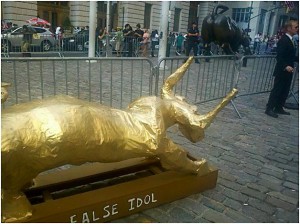 The market has become our “golden calf,” our idol of ultimate allegiance… This is when God—and then Moses—got angry. Why? Just because they built a golden calf? No. The calf could have been just a work of art, a statue to enjoy. What made the calf an idol was that the people gave the newly created calf the credit for leading them out of Egypt. They gave to the golden calf credit and attributes that belong only to God…
The market has become our “golden calf,” our idol of ultimate allegiance… This is when God—and then Moses—got angry. Why? Just because they built a golden calf? No. The calf could have been just a work of art, a statue to enjoy. What made the calf an idol was that the people gave the newly created calf the credit for leading them out of Egypt. They gave to the golden calf credit and attributes that belong only to God…
Today, instead of statues, we have hedge funds, mortgage- backed securities, 401(k)s, and mutual funds. We place blind faith in the hope that the stock indexes will just keep rising and real estate prices keep climbing. Market mechanisms were supposed to distribute risk so well that those who were reckless would never see the consequences of their actions. Trust, security, and hope in the future were all as close to us as the nearest financial planner’s office. Life and the world around us could all be explained with just the right market lens. These idols were supposed to make us happy and secure and provide for all our needs. Those who manage them became the leaders to whom we looked, not just for financial leadership, but direction for our entire lives. That is idolatry.
Rich and poor alike were sucked into making heroes out of those who seemed to be able to turn everything they touched into gold. Holocaust survivor and Nobel Peace Prize recipient Elie Wiesel lost virtually all of his personal wealth and his foundation’s, up to $37 million, to Bernie Madoffs Ponzi scheme. “We gave him everything, we thought he was God, we trusted everything in his hands.”‘
(All pictures are courtesy of Catholics United, who produced the ‘golden calf’. Extracts come from pages 19-29 of the hardcover edition of Rediscovering Values.)
It's time to move from a narrowly defined shareholder economy to a stakeholder economy that includes workers, consumers, the environment , and future generations -- all in our economic calculations and decision-making.
The clean up of Zucotti Park -- announced by New York City Mayor Michael Bloomberg yesterday -- by city workers has been scrapped as of early Friday a.m.
The announcement came shortly after 6 a.m. EST, less than an hour before city workers were scheduled to enter the park near Wall Street where thousands of demonstrators have been camped out for nearly a month.
SMILEY: I'm still going to finish my point. You're right to go after Stanley O'Neal. I know you didn't mean to do this. I don't want to believe you meant to do this, but Stanley O'Neal, there are four or five black CEOs in this country. You choose a guy at Merrill Lynch to make him the poster guy for all the folks on Wall Street.
O'REILLY: Oh Tavis knock it off with the black business, will you? Oh stop.
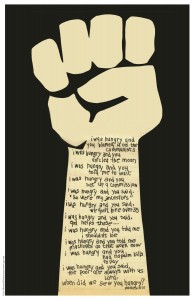 This poster originally appeared in the inaugural issue of The Post-American magazine in the fall of 1971. The Post-American was the original name of Sojourners Magazine. The name was changed to Sojourners when the intentional community that founded the Sojourners organization relocated from Chicago to Washington, D.C., in 1975.Sojourners
This poster originally appeared in the inaugural issue of The Post-American magazine in the fall of 1971. The Post-American was the original name of Sojourners Magazine. The name was changed to Sojourners when the intentional community that founded the Sojourners organization relocated from Chicago to Washington, D.C., in 1975.Sojourners
The text of the poster is based on Jesus' own words in Matthew 25:37.
They are words and ideas that are as relevant and revolutionary today as they were when Jesus first uttered them more than 2,000 years ago.
